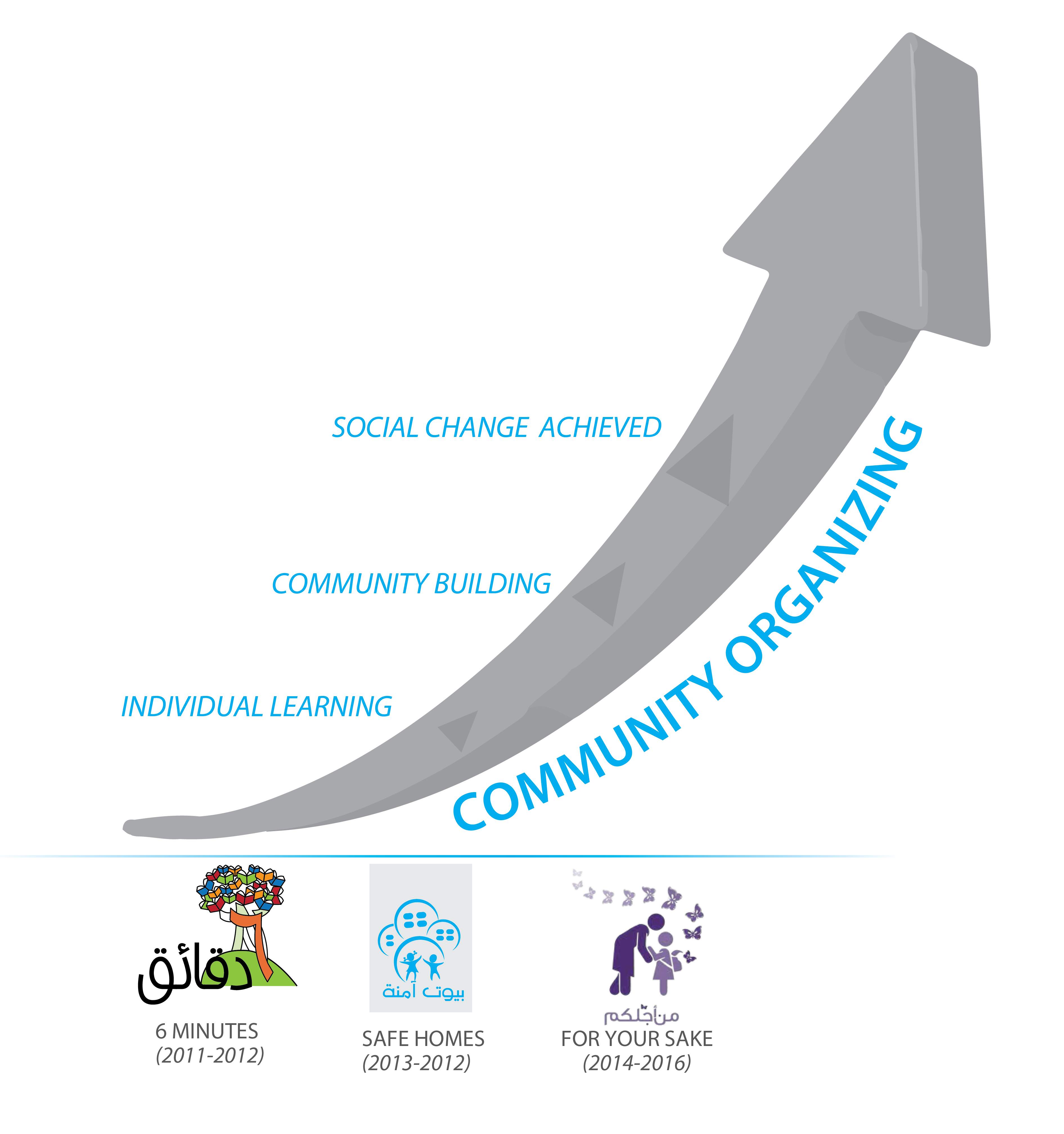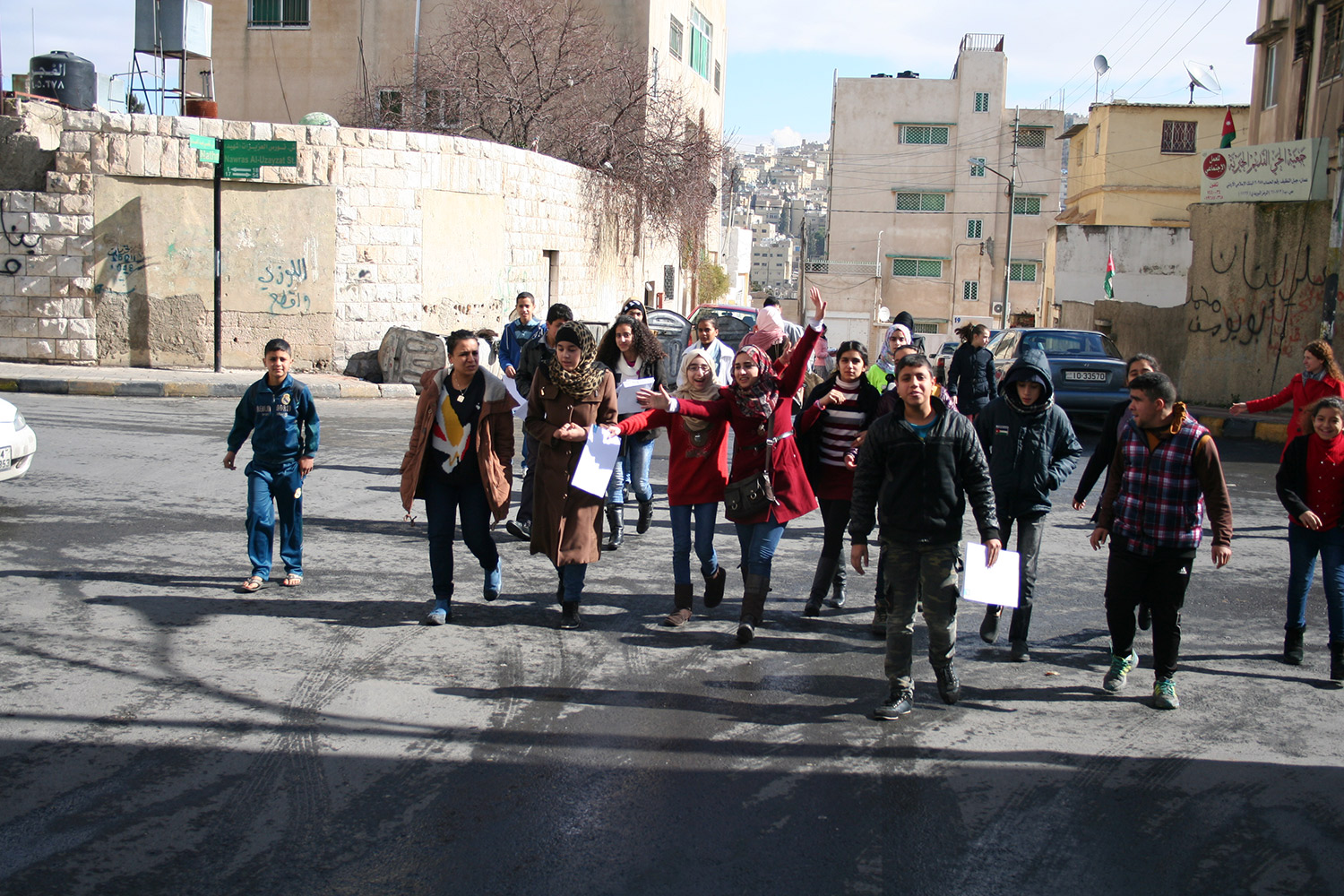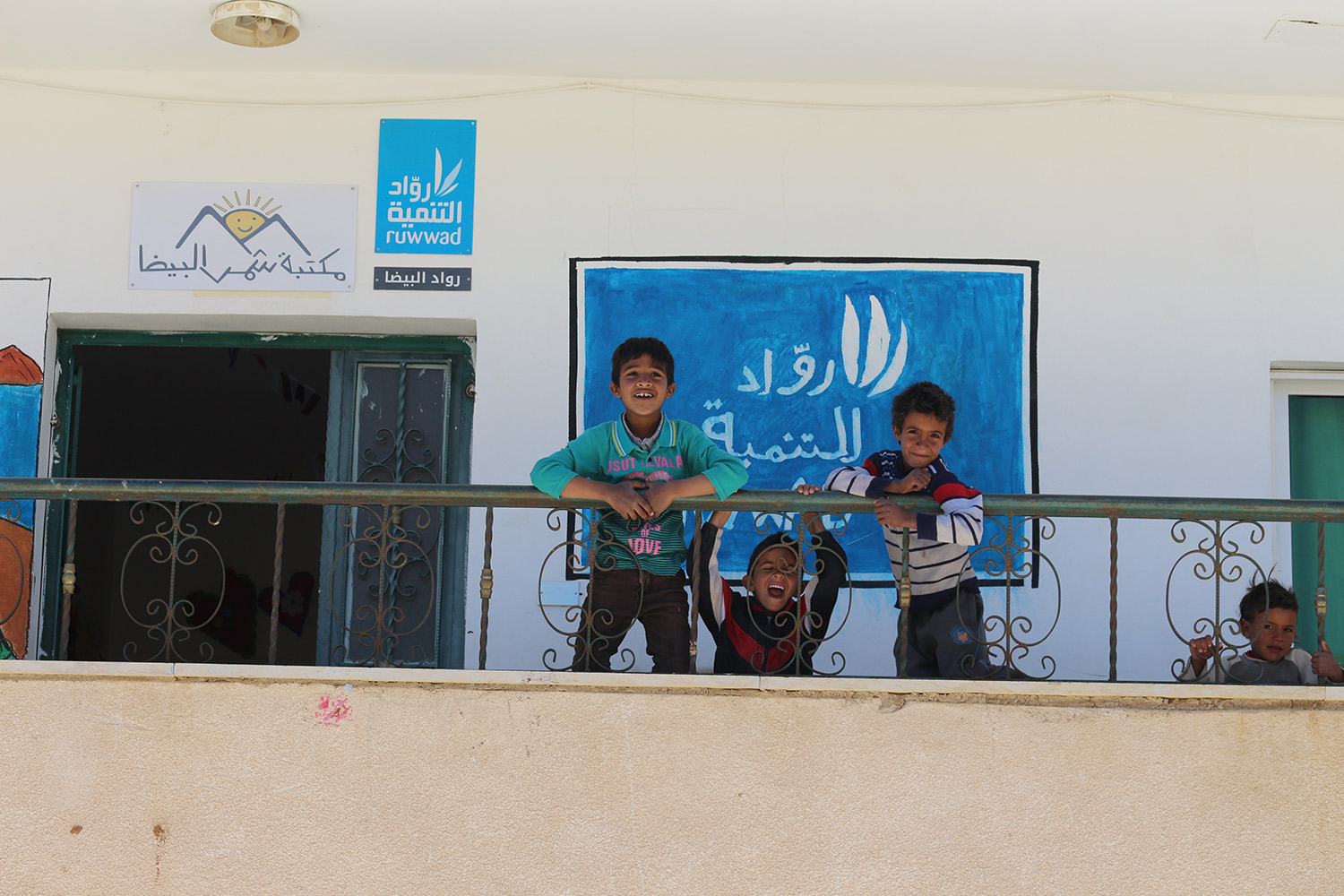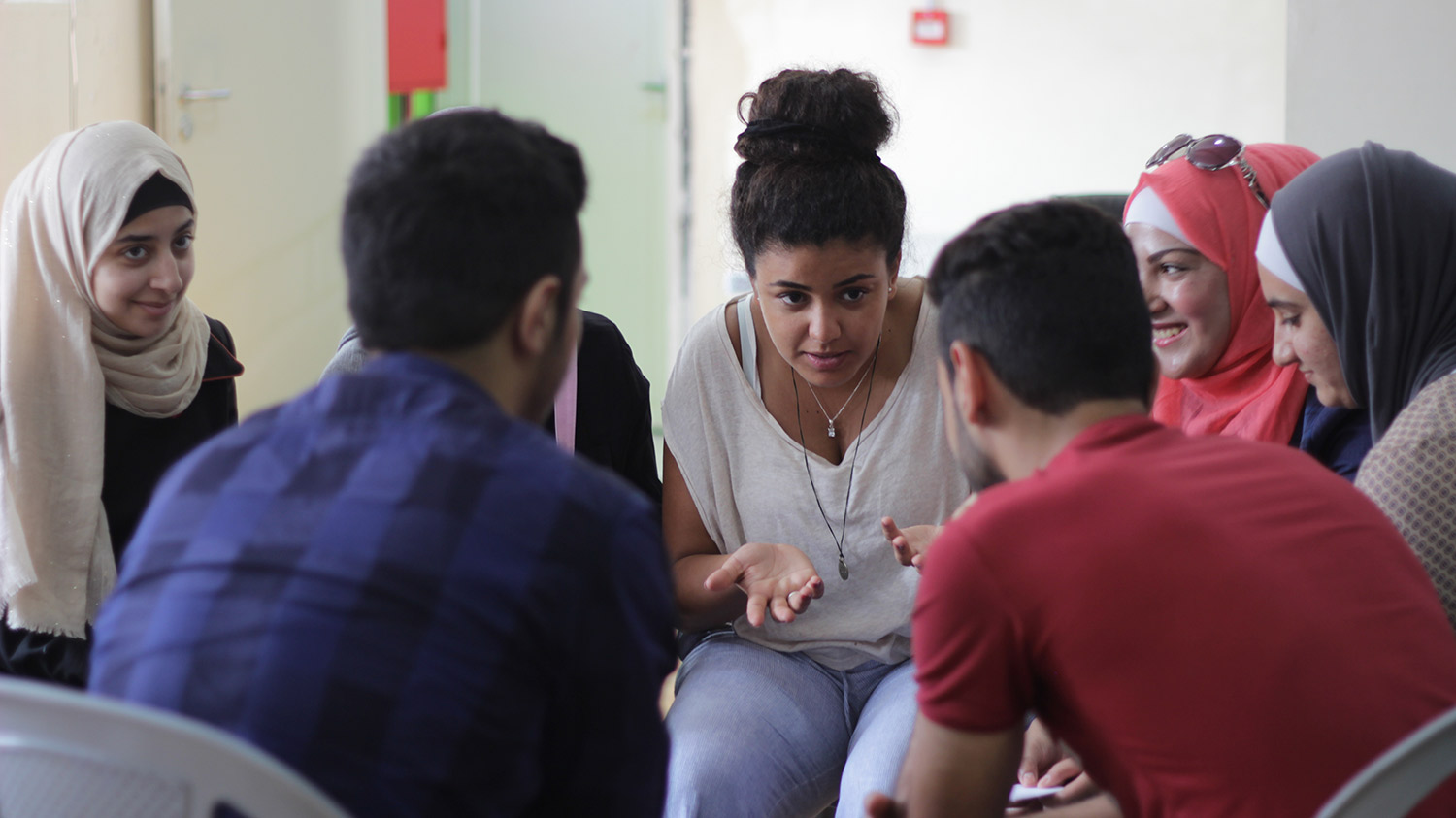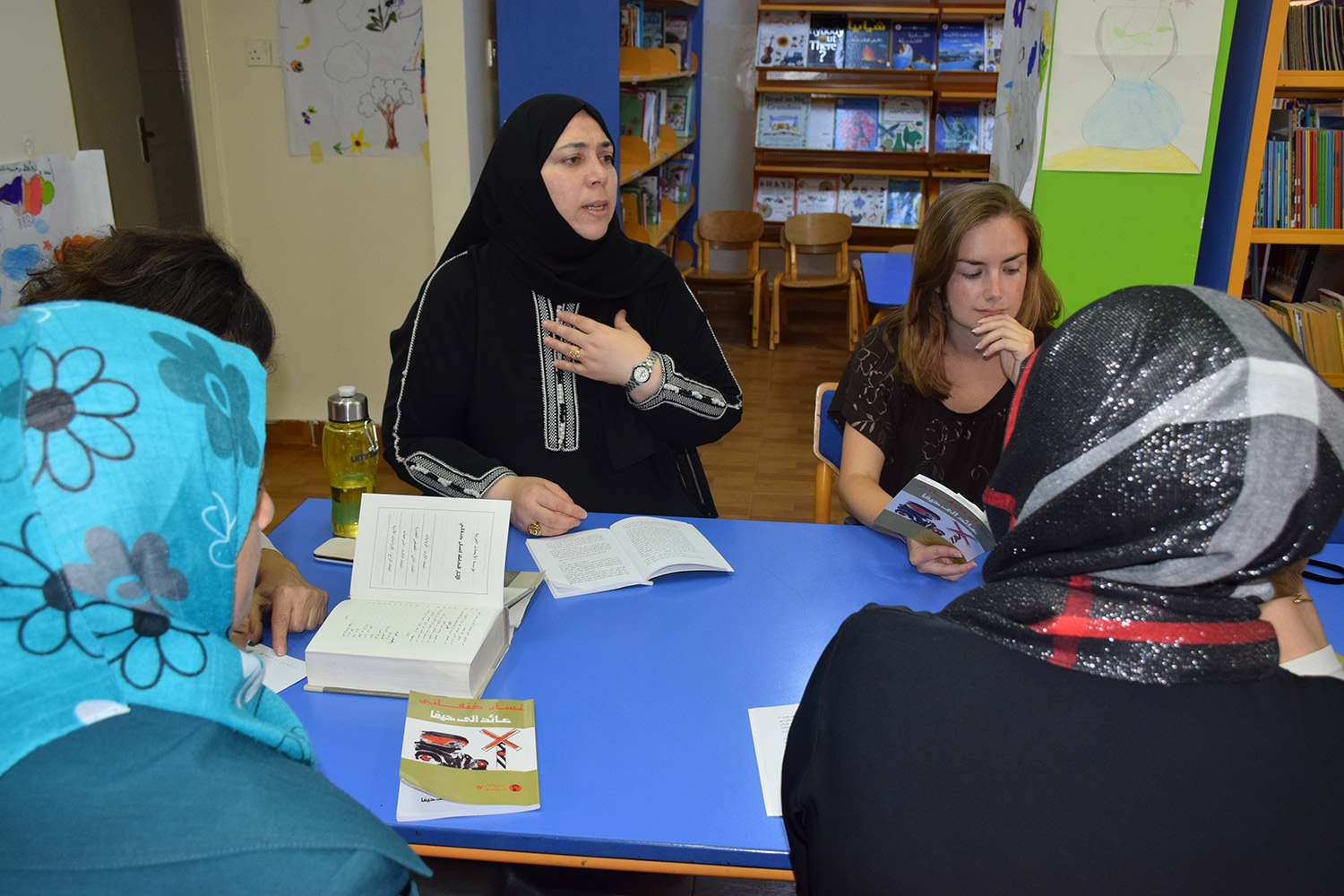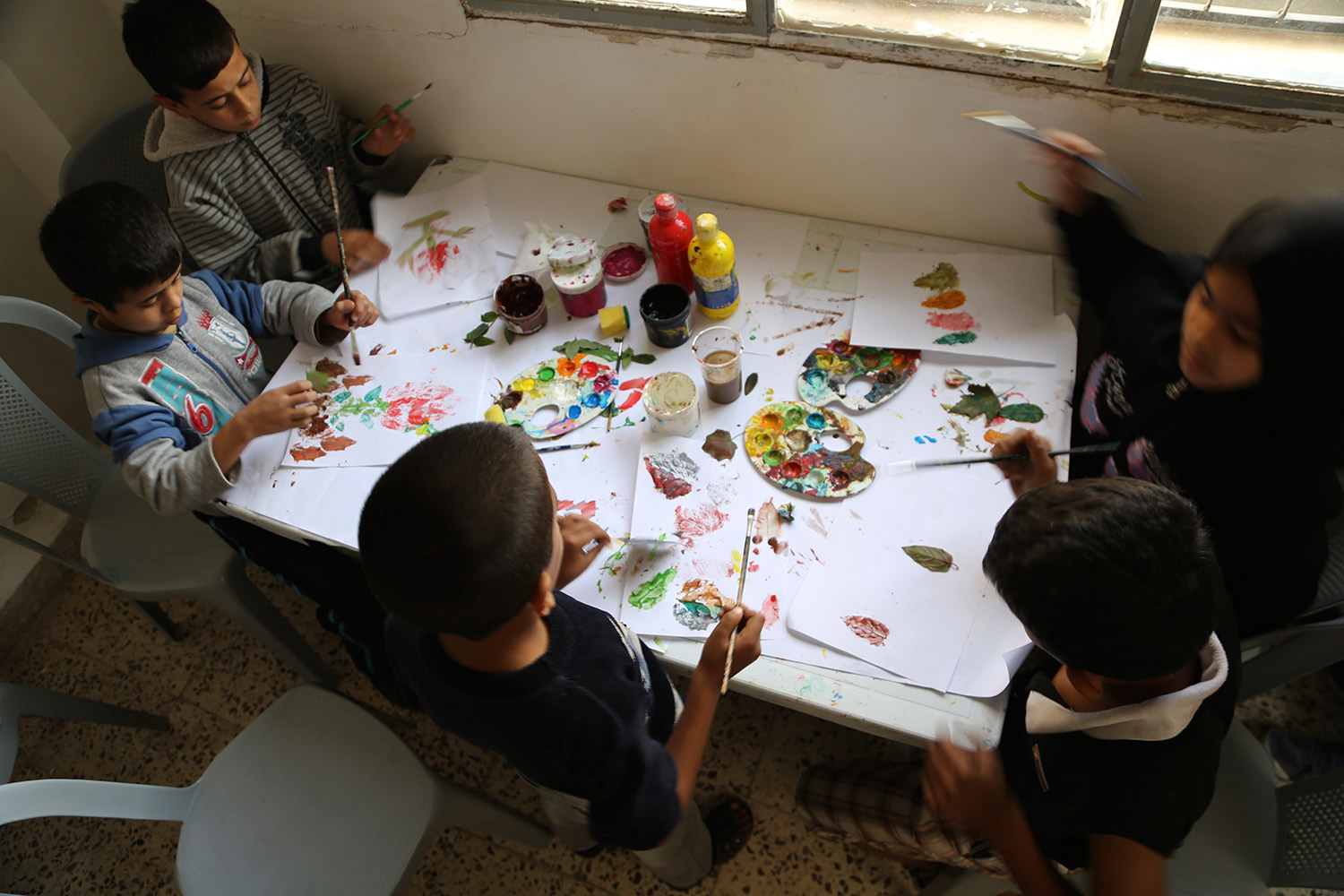
Ruwwad developed as an idea in mid-2004, when Fadi Ghandour, founder of Aramex International, one of the world’s leading logistics companies, discussed his intentions to play a more active role in community development with his company’s management team and CSR department. Until that time, Aramex had consistently supported social, educational and entrepreneurial initiatives. And so, in 2005, the decision was taken to establish a foundation that would transcend Aramex’s CSR programs. The foundation would involve other private sector players and work with a specific low-income community rather than allocate resources to various individual projects, and it would carry the name of Ruwwad Al-Tanmeya – The Arab Foundation for Sustainable Development.
In spring 2005, efforts were underway to register Ruwwad as well as purchase and upgrade a building that acts as a community center in Jabal al Natheef, in east Amman. It was clear to everyone who worked on the initiative that Ruwwad needed an on-site presence if it were to truly gain the trust of the community and become a vital asset. Parallel to the registration process, Fadi Ghandour continued to conduct many meetings and roundtable discussions with entrepreneurs, civil society groups and social activists. As a result, a support group developed around the core founding team led by Fadi and Raghda Boutros – Ruwwad’s Director at the time – and the early seeds were sown.
In November 2005, three hotels in Amman were simultaneously hit by suicide bombers and more than 60 people lost their lives. One of the young people killed in the attacks was Mousab Khorma, a Jordanian entrepreneur and close friend of Fadi Ghandour’s. Fadi called for a meeting with various friends and business partners. He introduced the newly established Ruwwad, presented a film on the community and raised donations for the Mousab-Khorma Scholarship Fund (MKYEF). The Mousab Khorma Scholarship Fund has now become the cornerstone of Ruwwad’s work with youth and local communities.
In mid-2006, Samar Dudin volunteered with Ruwwad, introducing a weekly two-hour youth interactive discussion forum with MKYEF scholars. This forum became the nucleus of cultural Dardashat, an integral part of the Enrichment Component within the Youth Organizing Program today. Over the following three years, Ruwwad embarked upon various initiatives, which would later evolve into its core programs.
By 2009, Ruwwad had established a strong presence for itself in the community. The proper infrastructure was in place and core services were set up, in partnership with government and private sector actors. Ruwwad then, in partnership with the Beida Amareen Cooperative, took the Shams Al Jabal model and the MKYEF program to Beidha (Little Petra), a Bedouin town near Petra. The scholars offered their community service and a children’s library was developed in partnership with the Swedish Anna Lindh Foundation.
Between 2011 and 2013, Ruwwad’s regional expansion took place through Aramex, as a main partner corporation, and a network of entrepreneurs. Find out more here about the expansion to Lebanon, Palestine and Egypt.
In 2012, Ruwwad expanded locally to reach Tafileh in the south of Jordan. Salma Moghrabi, Royana founder, got in touch with Ruwwad and introduced us to a network of youths. Consequently, a small fund was established to support 50 scholars. In 2013, the scholars launched their first summer club with 50 participating children in the small village of Eimeh, and early in 2014 a community center was founded in Al Qasr, also in Tafileh. By summertime, three summer clubs had been launched in Al Qasr, Eimeh and Ain Al-Beidha.
Planting the seeds for the future of Ruwwad, the year 2015 focused on enhancing the efficiency of operations in Jabal Al Natheef and the region through technical support in the areas of monitoring and evaluation, inquiry based learning and enhancing life coaching and counseling.
Jabal Al Natheef– Amman
Jabal Al Natheef, a marginalized urban area located in eastern Amman, is home to the Mohammad Amin Camp, an informal Palestinian refugee site with an estimated population of 54,000. Jabal Al Natheef faces many challenges, notably high rates of youth unemployment, higher than average illiteracy rates, rising school dropout rates and the absence of vital services.
These challenges, however, have not eroded strong communal links and support structures.
Tafileh City – Tafileh Governorate
Tafileh, with an estimated population of 87,000, is a governorate in the south of Jordan. The main sources of employment are the government, the military and the police. Perhaps the remote geographic location makes Tafileh city and the surrounding villages among the most marginalized cities in the south, to which even Jordan’s main highways do not provide access.
Beidha “Little Petra” – Ma’an
The village of Beidha in the governorate of Ma’an forms a very small tribal community in the Petra region south of Jordan. Beidha, better known for the archeological site of ‘little Petra’ and its Neolithic heritage, is home to around 450 people from the tribe of Amareen. The village suffers from poor infrastructure, male school dropouts and a lack of informal learning and recreational activities for children and youth. The people of Beidha remain committed to their Bedouin heritage and are involved in tourism-related activities.
Youth Organizing Program
The youth represent a vast and often untapped resource for immediate and long-term community development efforts. They are receptive to new ideas and are willing to invest more in change. When young people are able to access opportunities that spark their creativity and dynamism, they become a potent force for positive change in their communities.
In our partnership with the youth, we focus on education, participation and choice. We work together to even the odds by helping them access quality education, and by generating opportunities for personal growth as well as skill and leadership enhancement. The weekly community service is at the heart of our youth program.
The end objective is scholars with skills and experiences that enable them to become change agents in their communities. The key pillars of this program are the Mousab Khorma Youth Education and Empowerment Scholarship Fund (MKYEF) and Cultural and Business Enrichment.
Click on each of the boxes below to learn more about the components of the program.
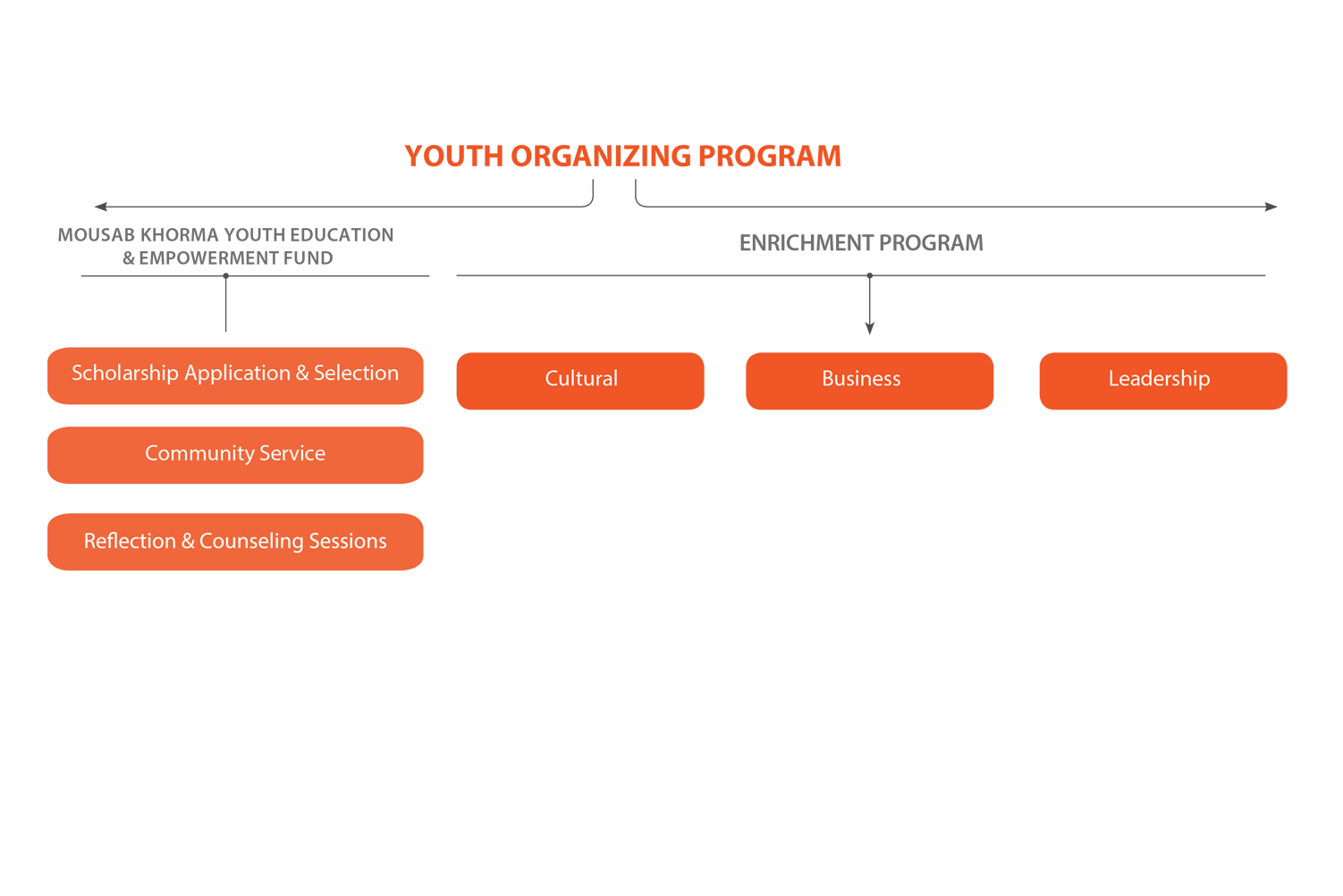
Child Development Program
The children in the communities where we work often have no access to some of the most basic rights to which every child is entitled. As a result, many end up stumbling on a path that carries them further away from their potential.
The Child Development Program staff and volunteers, many of whom are from the community itself, dedicate themselves to answering questions, availing resources and sharing age appropriate knowledge and skills, guiding each child through a journey of personal, emotional and physical growth.
The program has three integrated components that promote practices which develop children’s creativity and physical wellbeing: Inquiry-based Learning, Parental and Community Support and School Outreach Activities.
Click on each of the boxes below to learn more about the components of the program.
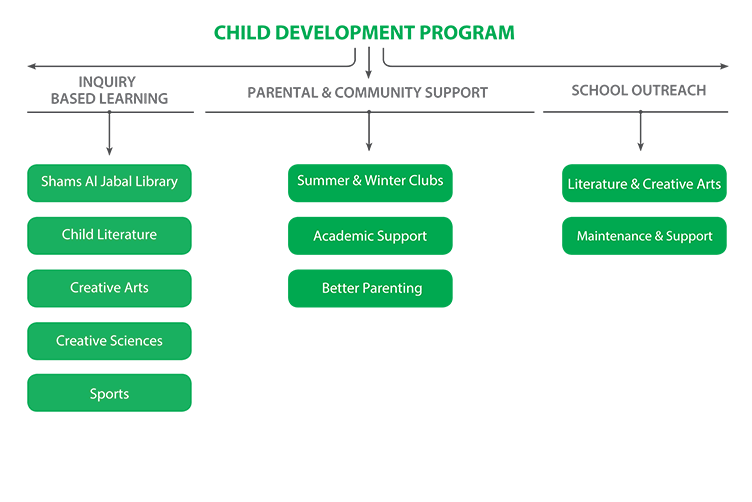
Community Support Program
At Ruwwad, we believe that solutions to problems are best engineered by members of the community. We use a collaborative, participatory approach to community organizing and development, working hand-in-hand with interested constituencies and engaging as partners and decision makers.
The Community Support Program comes together through three components that increase awareness and access to vital services and rights: Partnerships and Services, Psycho-social Support and Women Advancement.
Click on each of the boxes below to learn more about the components of the program.
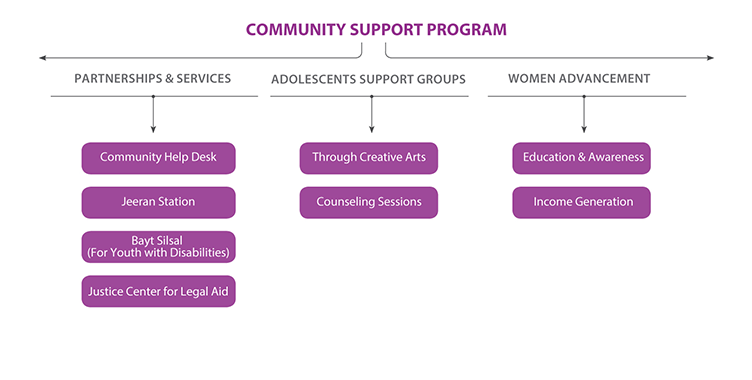
Community Led Campaigns
Community organizers mobilize citizens to work collectively in solving longstanding challenges. Towards this end, Ruwwad adopts a structured community-focused methodology aimed at organizing community-led campaigns. The main objective of such campaigns is to nurture civic initiative and agency.
Ruwwad introduced the concept of community organizing in 2010 through its partnership with “Mujtama3i”, a dedicated platform for Arab organizers, and subsequently with “Ahel”, a social enterprise specialized in community organizing. In 2011, Ruwwad, Jordan, launched the “6 Minutes Joy of Reading,” its first campaign in Jabal Al-Natheef, and in 2012, Ruwwad kicked off the “Safe Homes” campaign.
In 2014, Ruwwad launched “For Your Sake” to address child abuse in neighboring schools, and 2015 signaled the start of intensive efforts to address and introduce corrective action. The year 2016 marked the local community’s success in protecting children from physical and verbal violence in 12 schools in East Amman.
